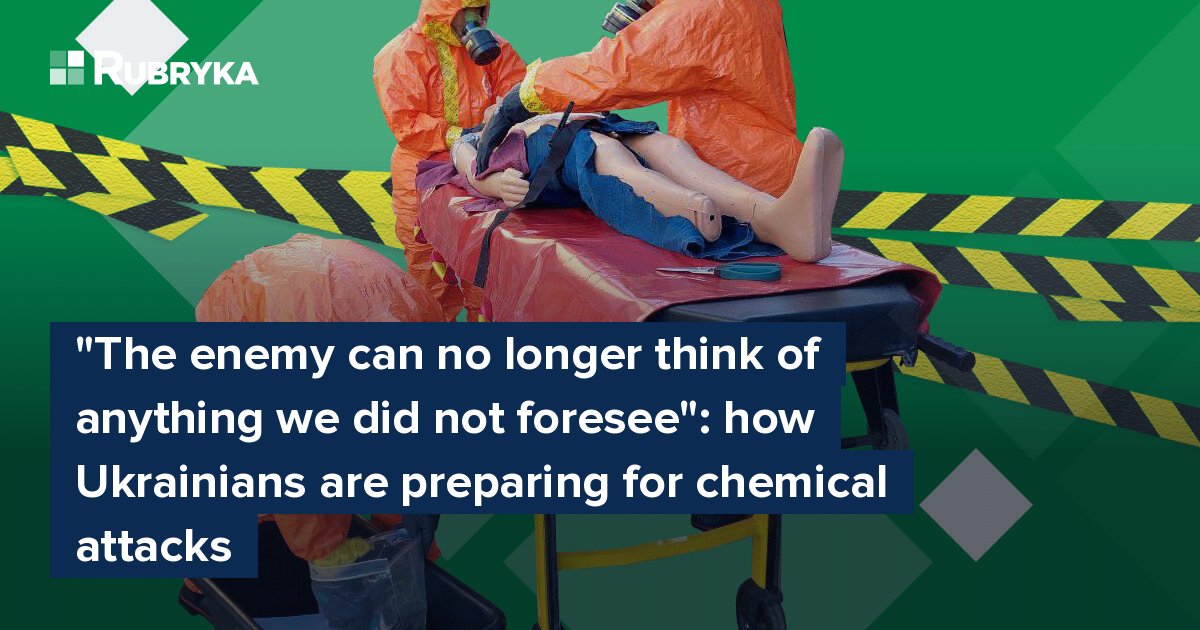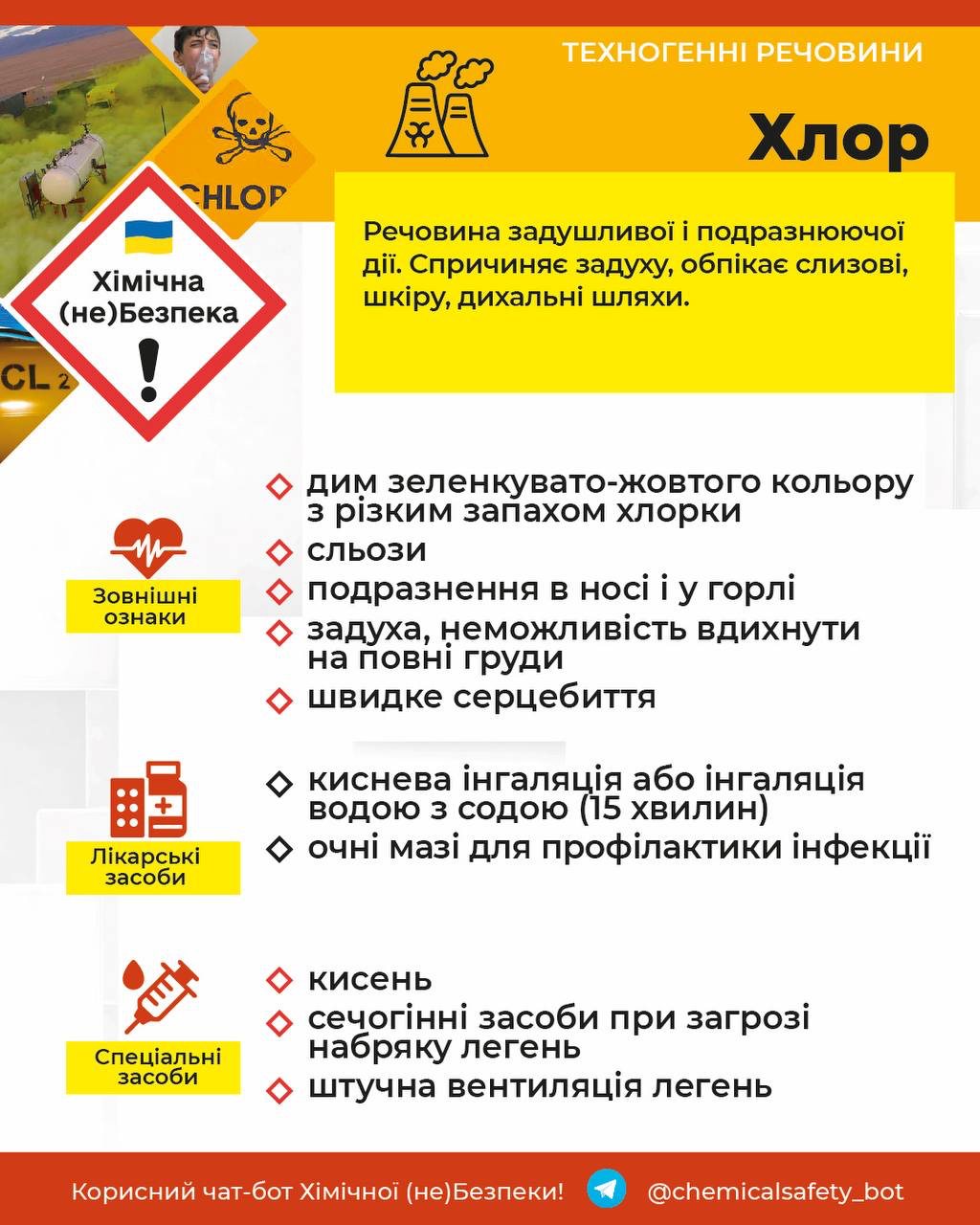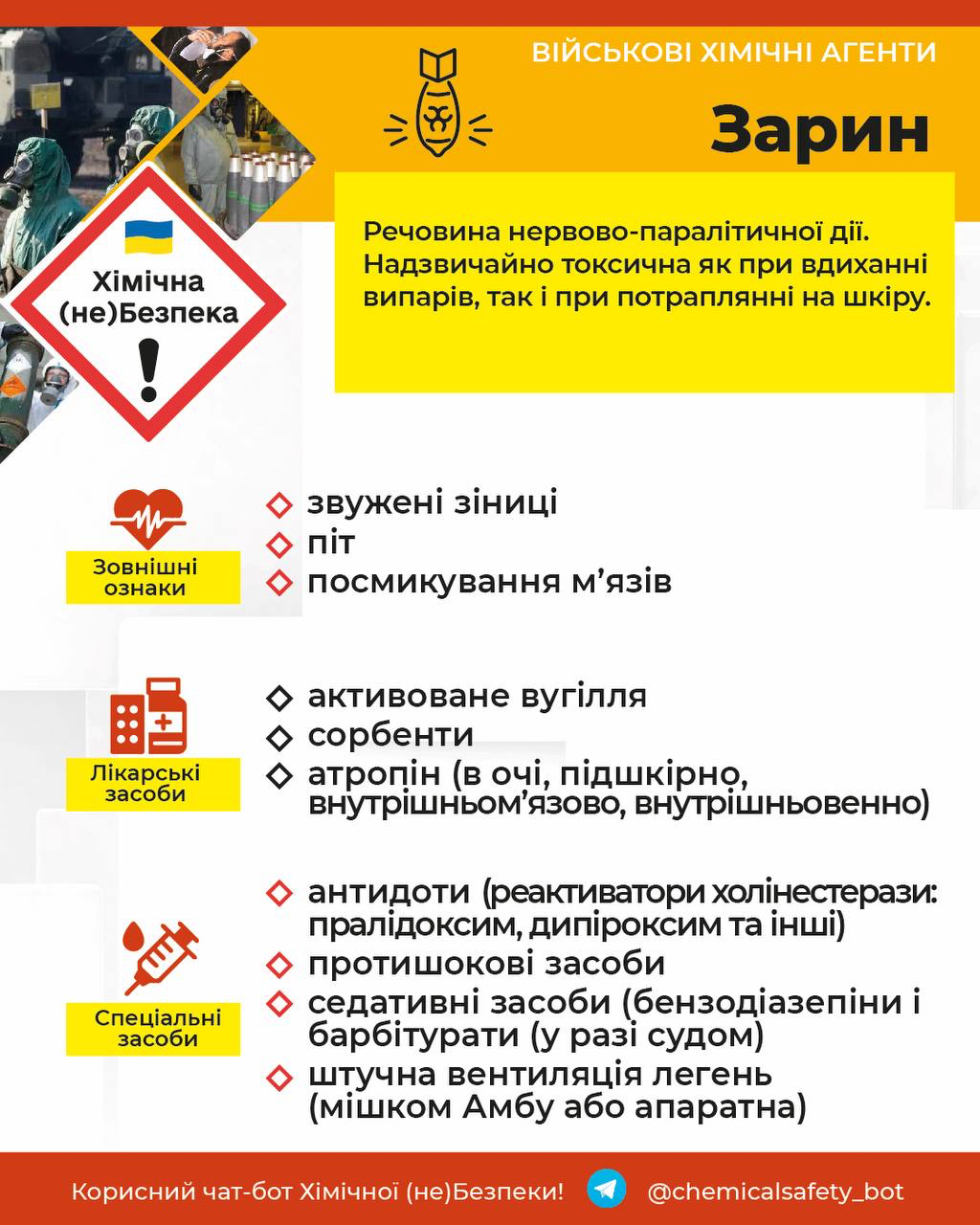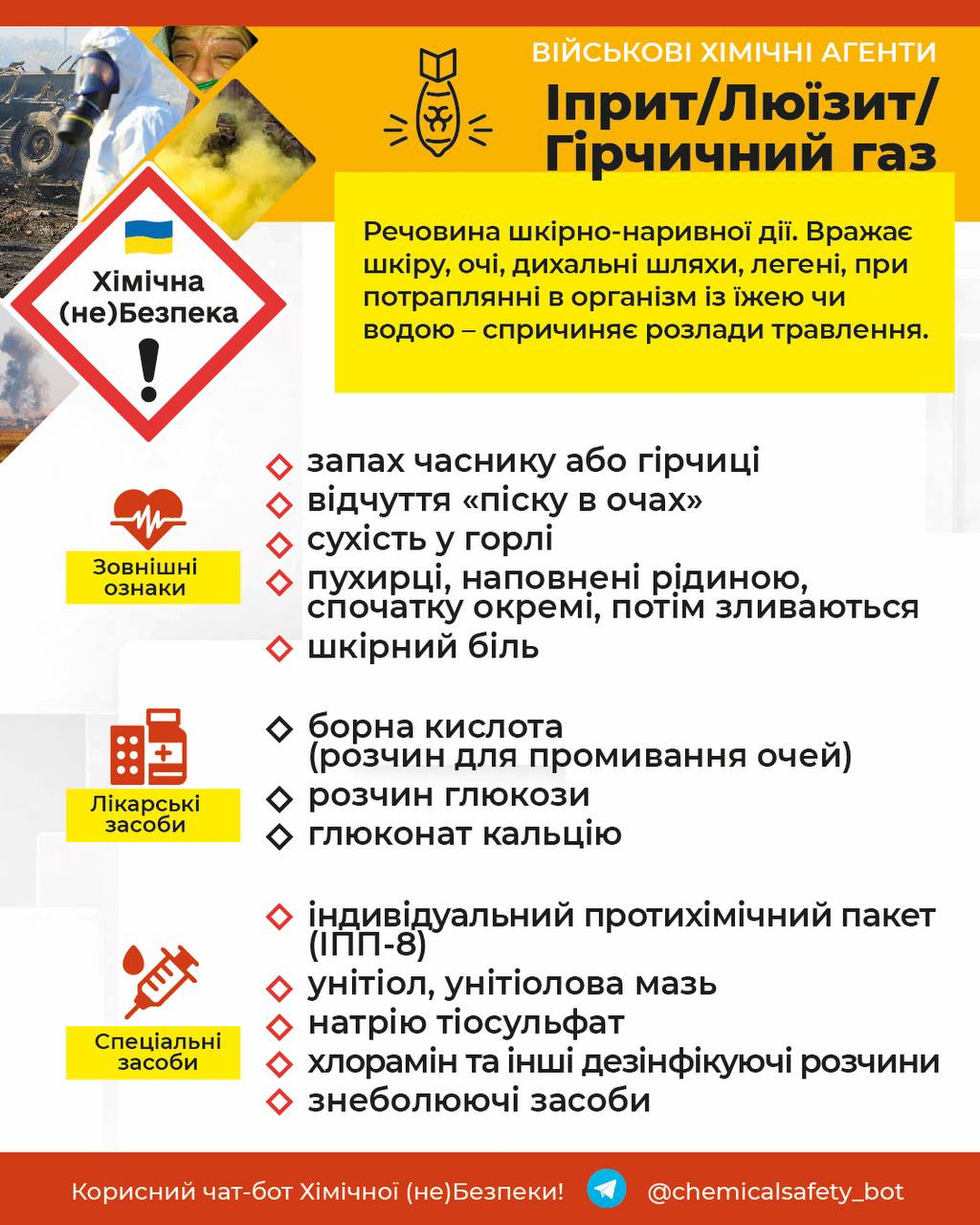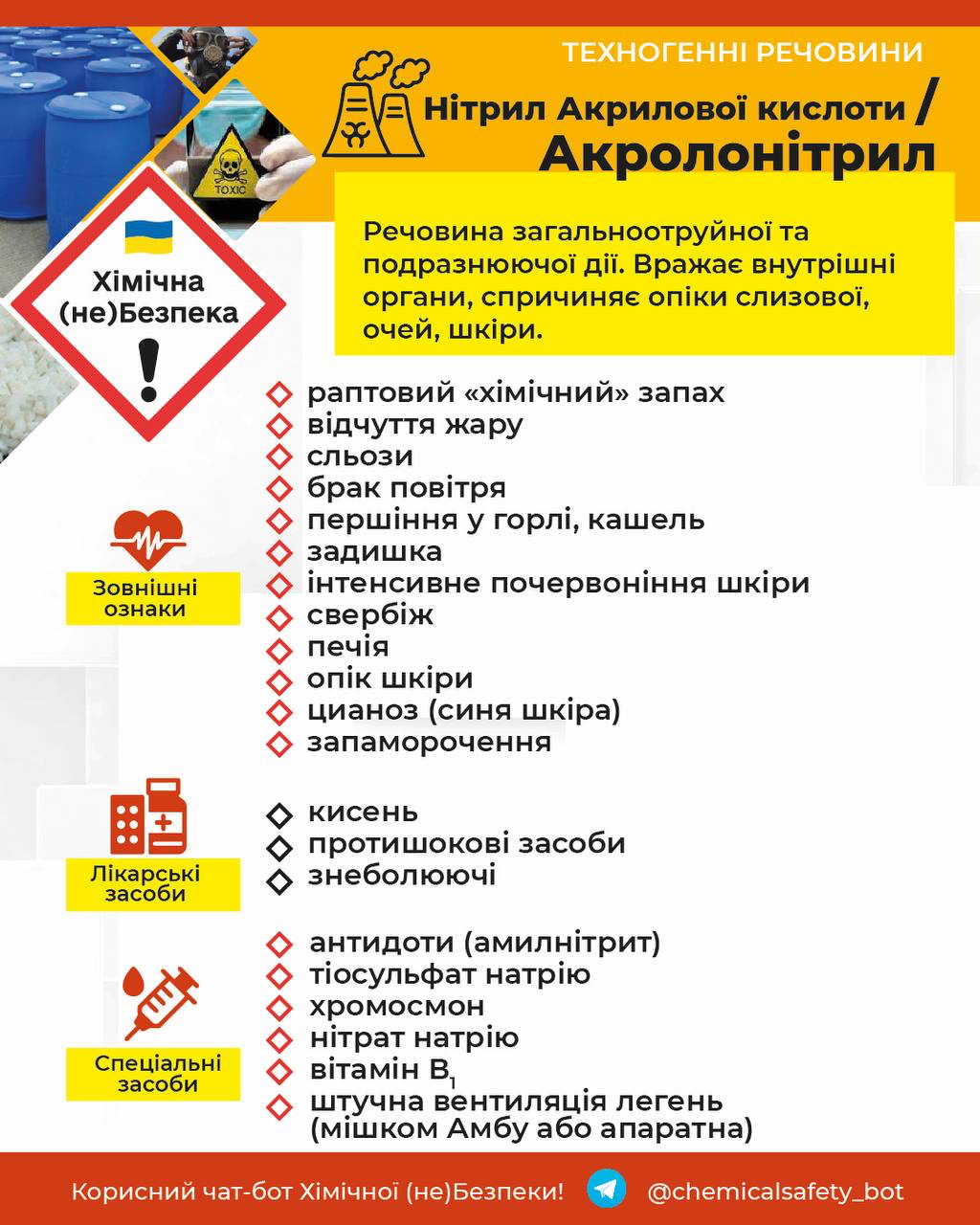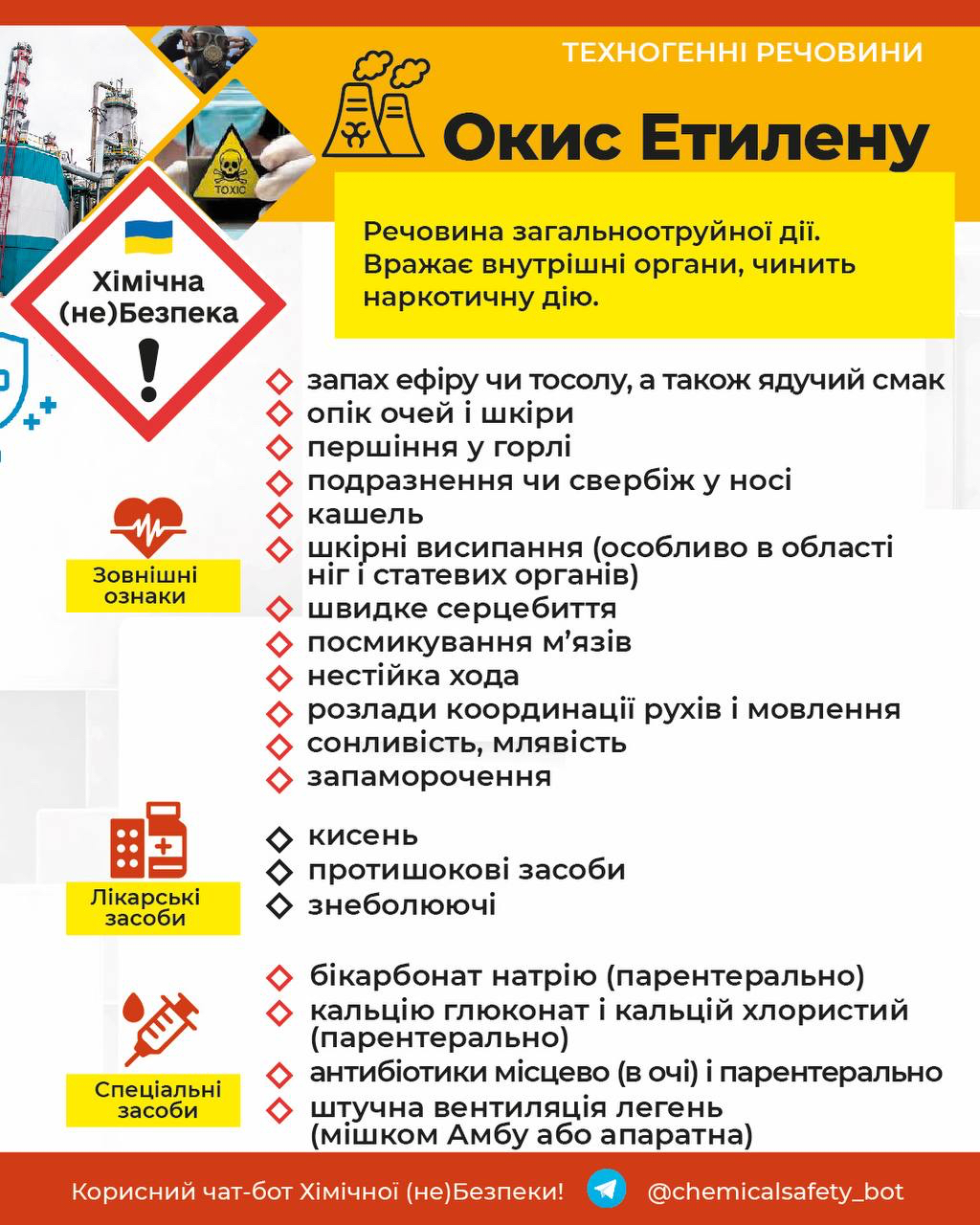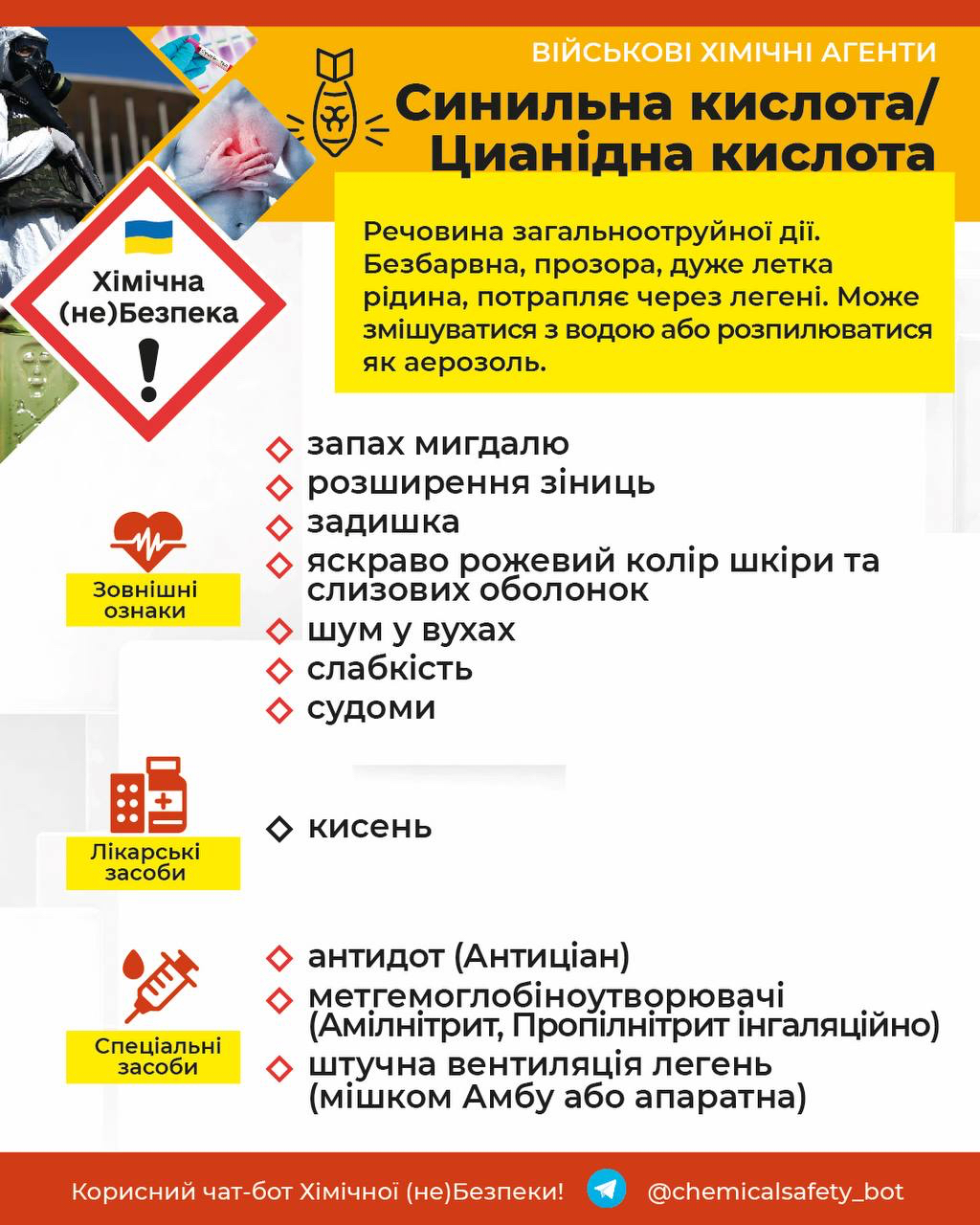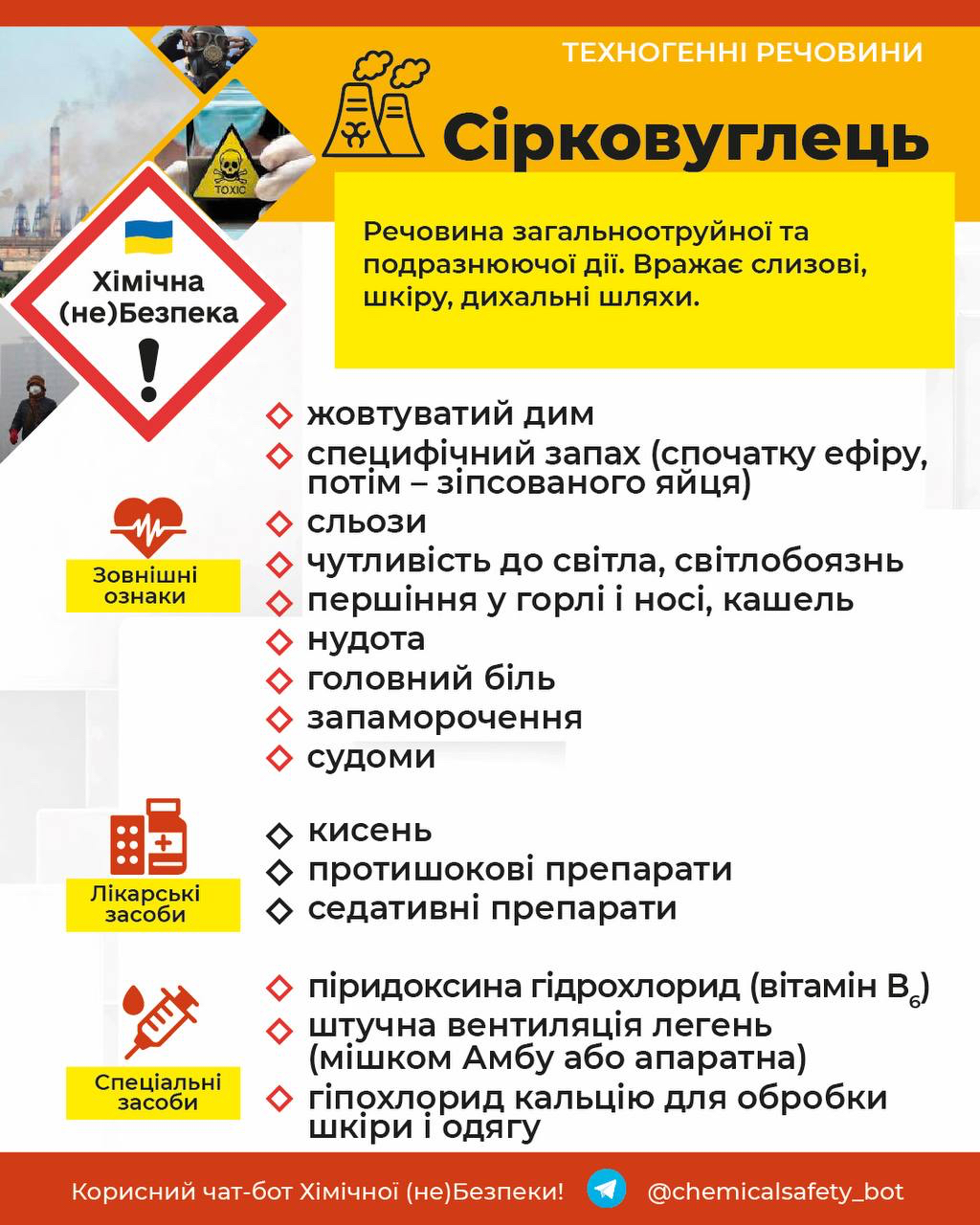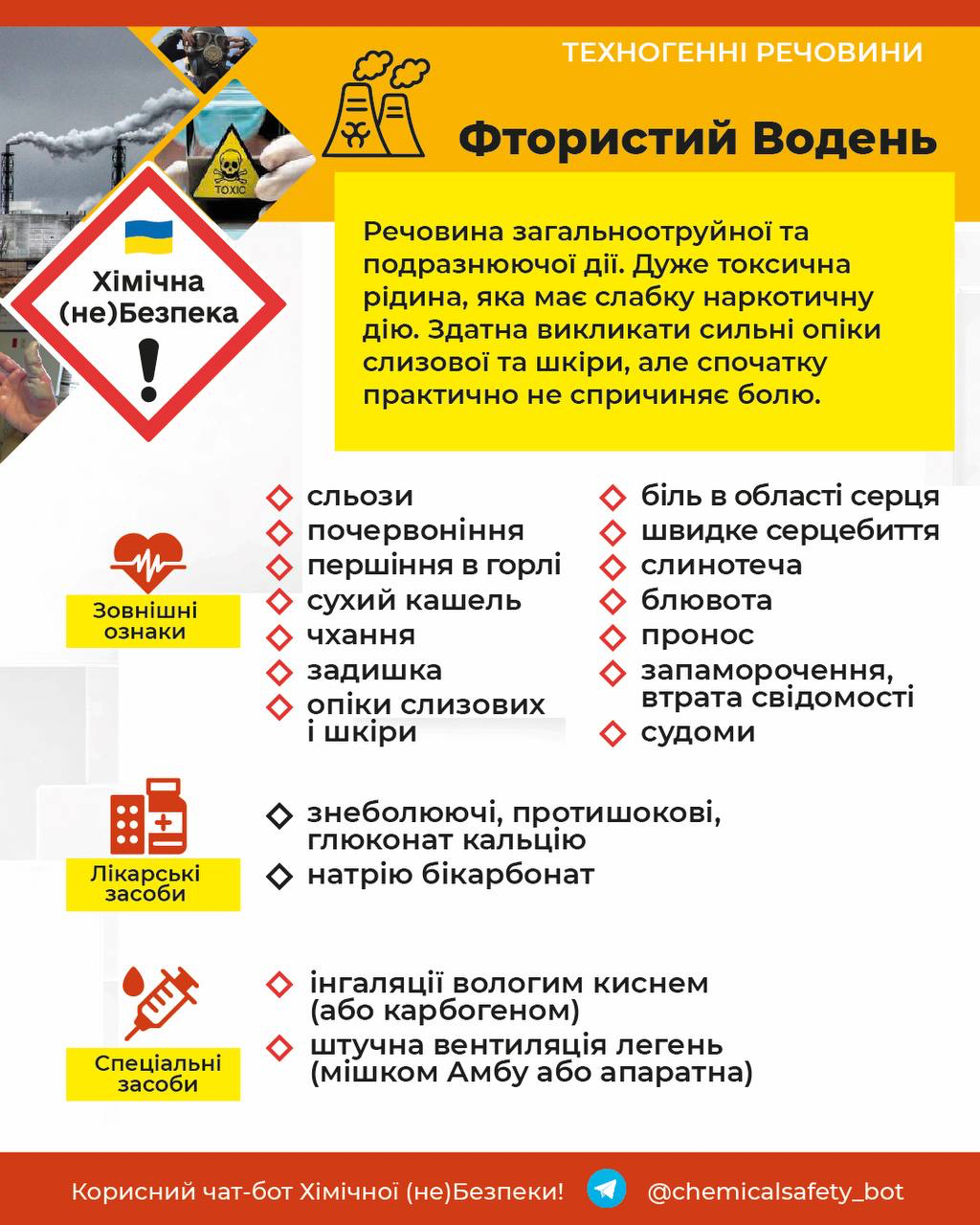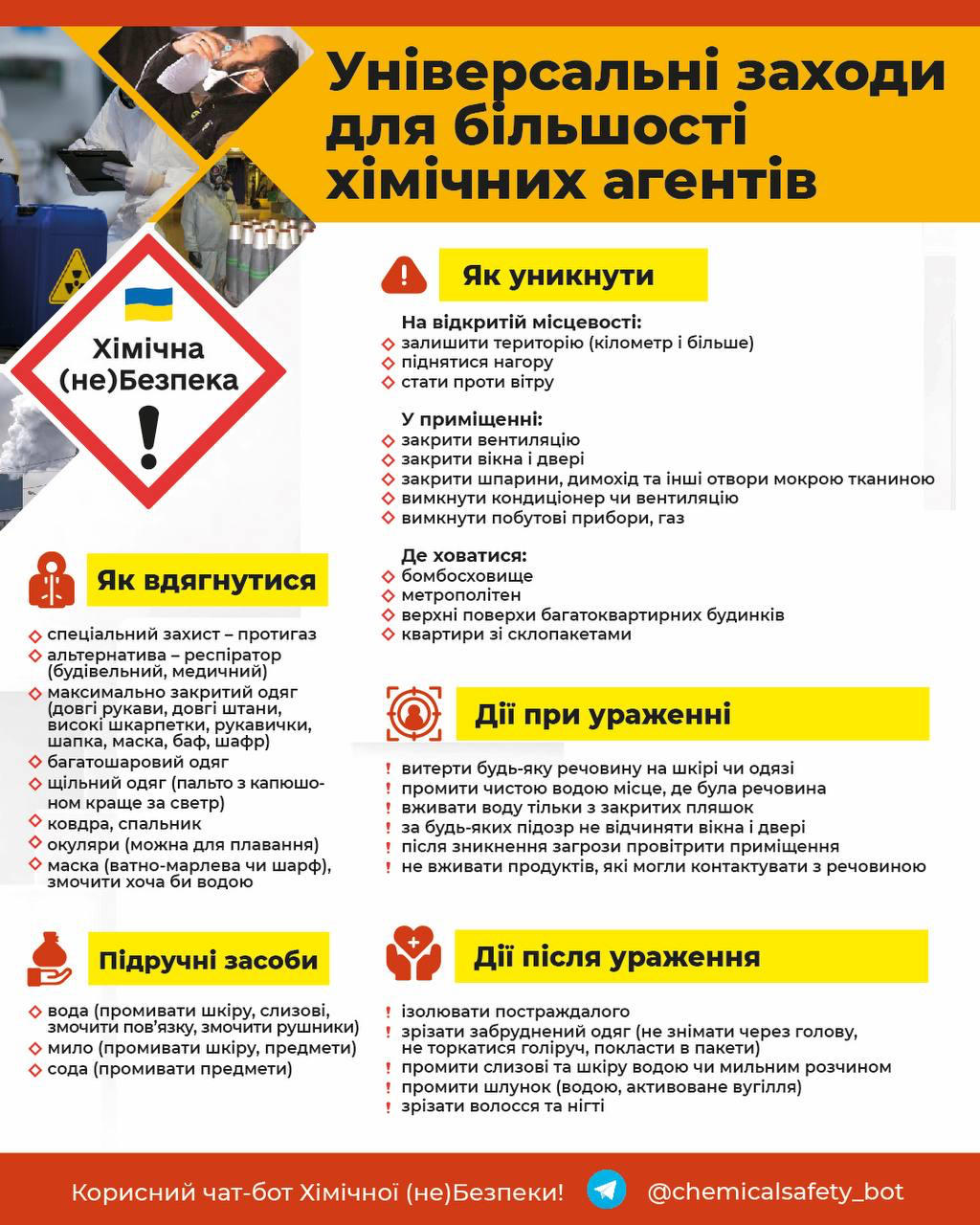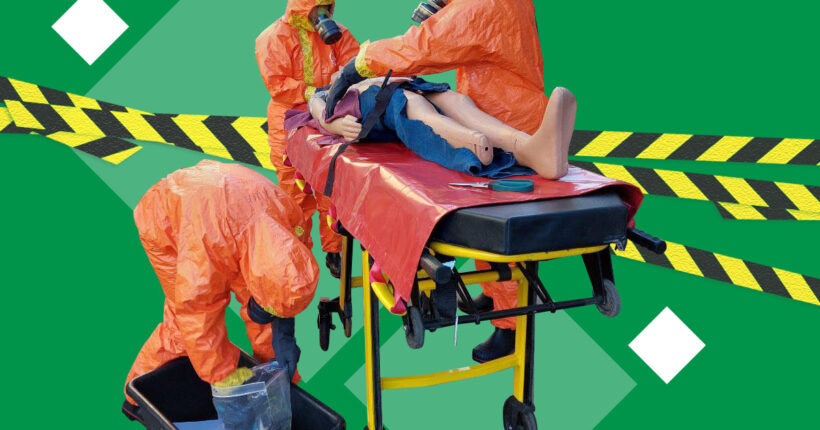
Rubryka talked with the director of the "Ukrainian Scientific and Practical Center of Emergency Medical Aid and Disaster Medicine of the Ministry of Health of Ukraine" Vitaly Kryliuk, about how they will work with victims of chemical attacks, about the availability of antidotes for doctors and about modern means of personal protection.
What is the problem?
Probability of chemical attacks
"Considering the fact that the russians are waging war inadequately with the use of terrorist elements — the use of chemical weapons is possible. Whether it will be implemented in reality — no one knows. We would like this not to happen, but we have to be ready for any potential threat," says Vitaly Kryliuk.
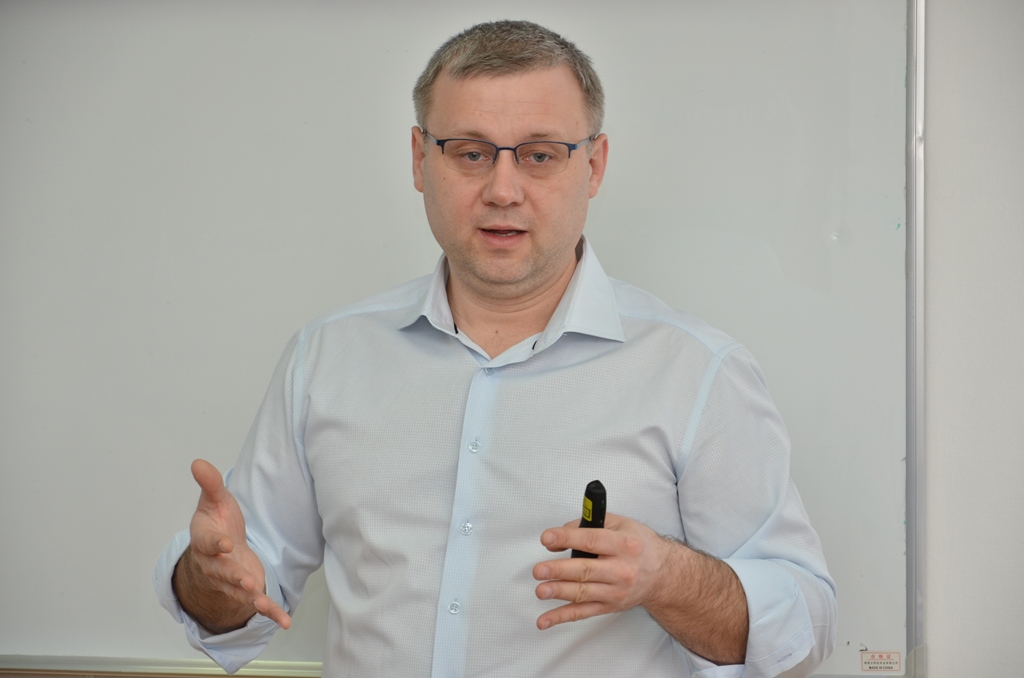
Vitaliy Kryliuk
There is a huge amount of chemicals that the russians can use. They are divided into three groups:
- those that affect the respiratory system and cause the victim to suffocate;
- drugs with an ulcerative skin effect, which cause wounds similar to burns;
- those that harm the nervous system and have a nerve-paralytic impact (the russians have already used a poisonous substance from this category, "Novichok," against their own oppositionists).
"The use of chemical weapons is prohibited; such cases are documented and investigated. It is customary to believe that use of such weapons are a sign of terrorists. Why was it abandoned during the First World War? Because it is not precise and depends on weather conditions. It also has a more psychological impact on people," Vitaliy Kryliuk explains.
It has been proven that chemical weapons were used by Syria, whose military ally is russia — it was documented. Subsequently, the russian federation promised to contribute to the publication by the Syrian troops of information about chemical weapons stockpiles and help in their destruction. Of course, russia did not keep its promise.
In addition, in the Sumy region, in the settlement Bilka, after the de-occupation, they found the remains of chemical weapons, which were probably planned to be used by the russian military — sarin in ampoules and some other items. The mayor of Trostianets, Yury Bova, talked about it.
Despite these cases, Vitaly Kryliuk is skeptical of the thesis that chemical weapons will be used en masse in Ukraine. Because the same most poisonous gases — sarin, soman — will be needed in huge quantities.
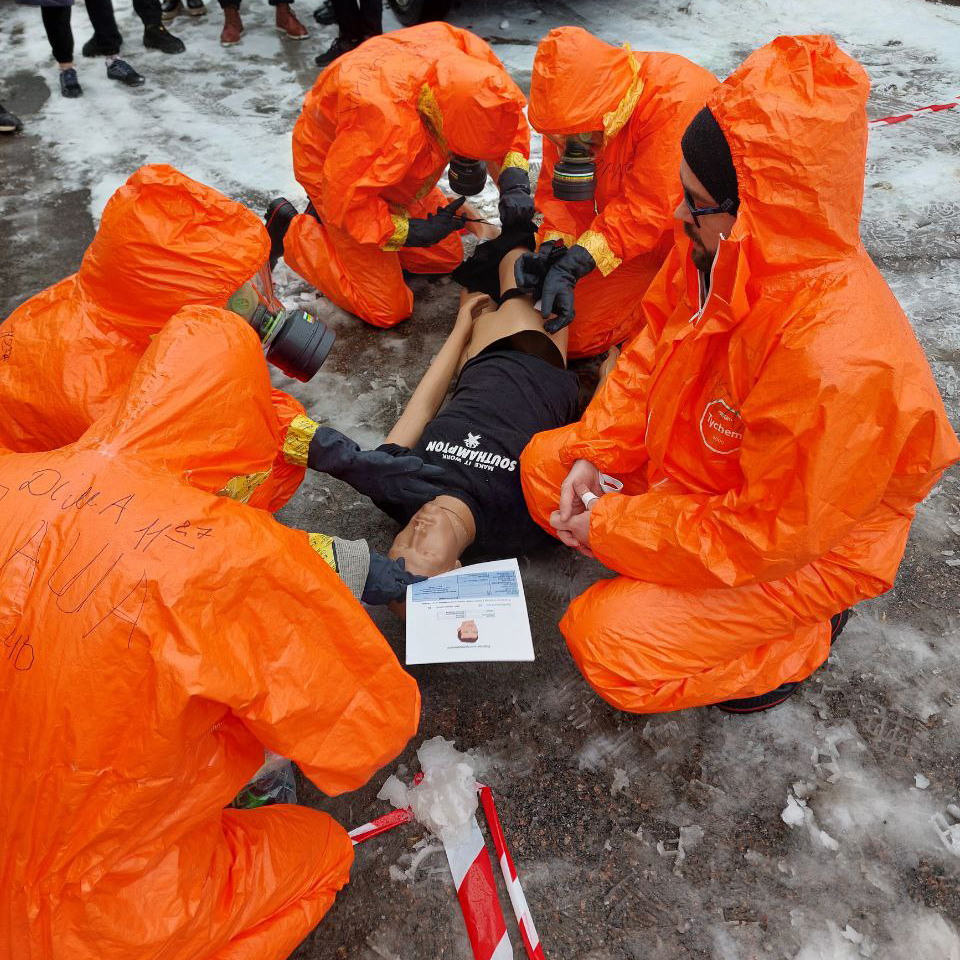
During the training of doctors in Sumy
Missile attacks on chemical industry enterprises are more dangerous for Ukrainians. Their damage will lead to the release of toxic substances into the air, water, and land. But responding to such situations and the use of chemical weapons, in general, is not much different from eliminating the consequences of a chemical threat in peacetime.
"In addition to chemical weapons, we have many industries that can be dangerous; no one has canceled natural disasters or emergencies. That's why doctors know and are constantly preparing for this," Vitaliy Kryliuk says.
What is the solution?
Preparedness of doctors for chemical attacks
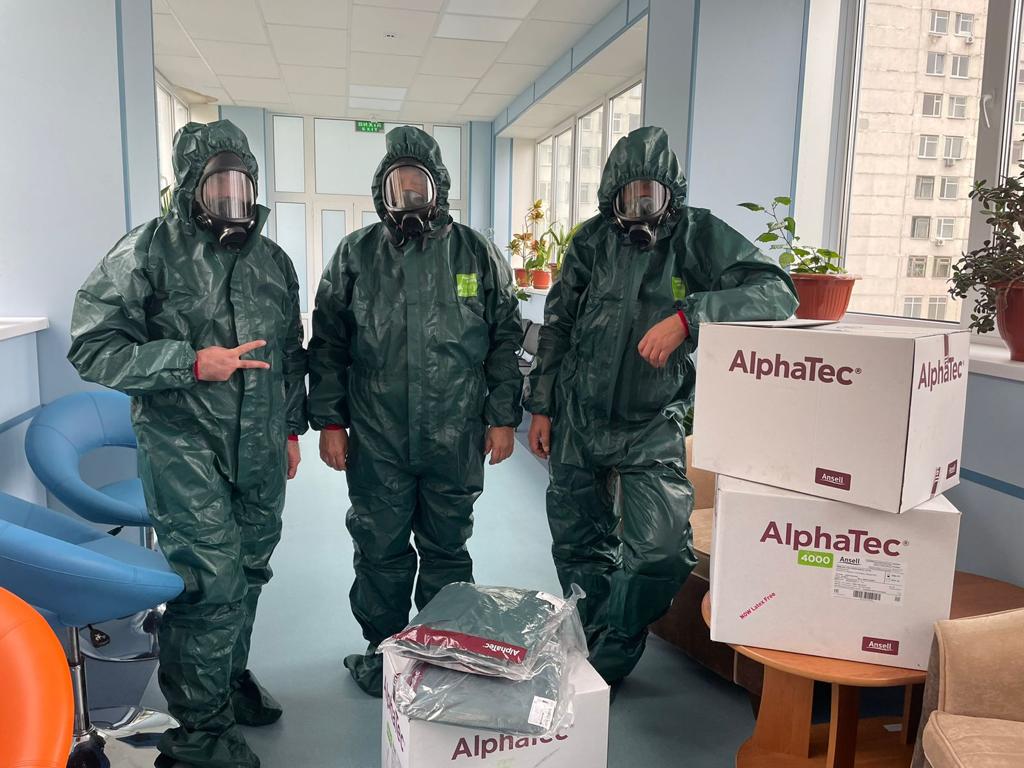
"If we consider the situation in terms of the emergency medical care system, then the layer of work should be divided into two large parts — pre-hospital and hospital. The functions are the same, but the amount of work is different.
Doctors should not work in an emergency zone. We have the National Emergency Service, which should actually carry out decontamination (the process of eliminating chemical or radiation factors, — ed.). However, we all understand very well that in the event of an emergency, everyone will wait for the arrival of an "ambulance"; this has been proven by many cases abroad. Therefore, you should be ready. "Ambulances should have protective equipment to protect, first of all, the medics," says Vitaliy Krylyuk about the necessary response.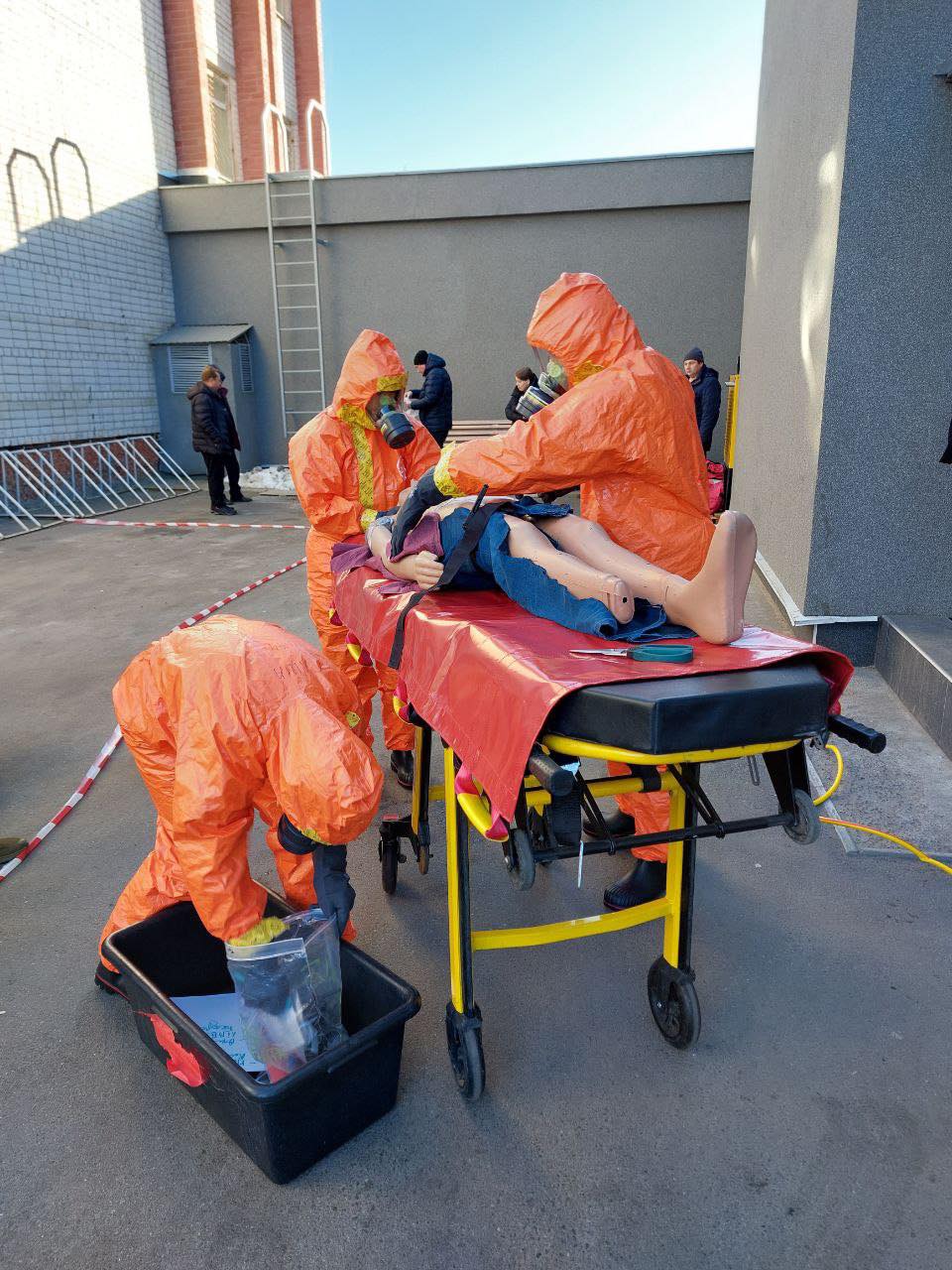 Photo from medical training in Chernihiv
Photo from medical training in Chernihiv
The Ukrainian Scientific and Practical Center director recalls the sarin attack in the Tokyo subway. In 1995, criminals stuffed bags of sarin wrapped in newspapers into subway cars. More than 5,000 people were poisoned, and another 10-12 died.
"Medics suffered the most then because they all rushed to help," Vitaliy Kryliuk says.
Medics working in an emergency area with signs of chemical weapons use should wear protective equipment. As a rule, these are respirators (respiratory protection) and a suit (skin protection).
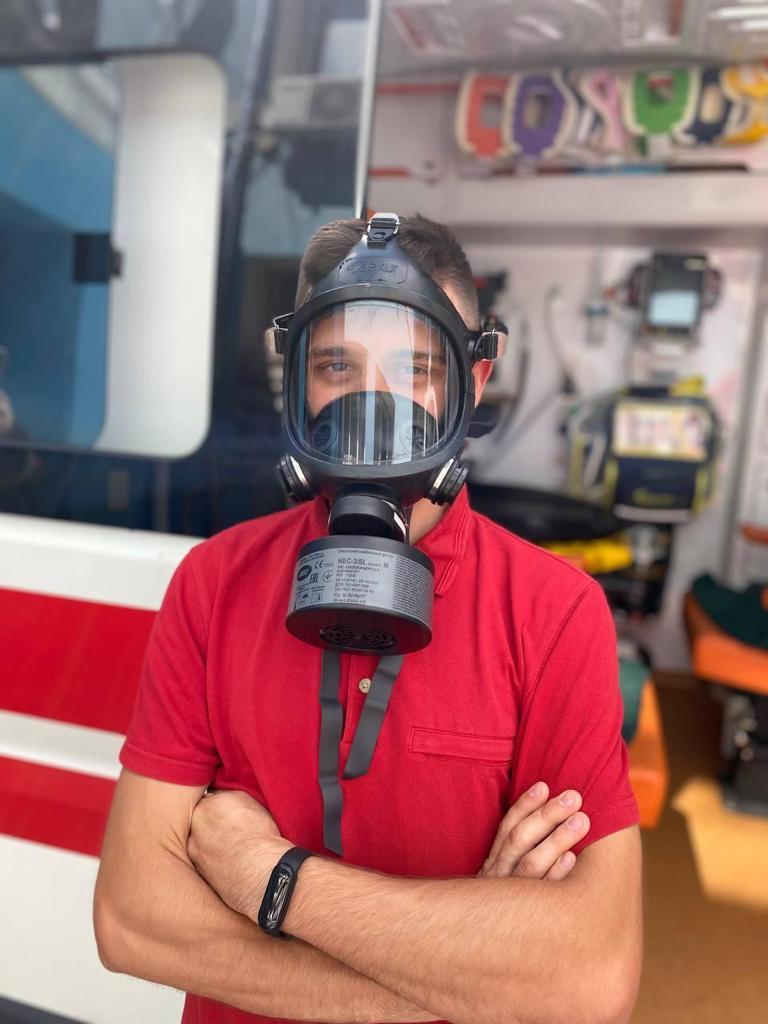
Special entrances should be prepared in the hospital for receiving victims from the emergency zone. People will be met there, and the affected clothes will be removed from them.
"The staff must be able to remove clothes and wash the victims properly. Simple things, really, but they are actually essential. Whether it is chemical weapons or the release of chemical substances, the actions of medics will not change because help will be provided in the same way. Maybe the antidotes will change because not all substances have them at all, but the general rules are the same," Vitaly Kryliuk says.
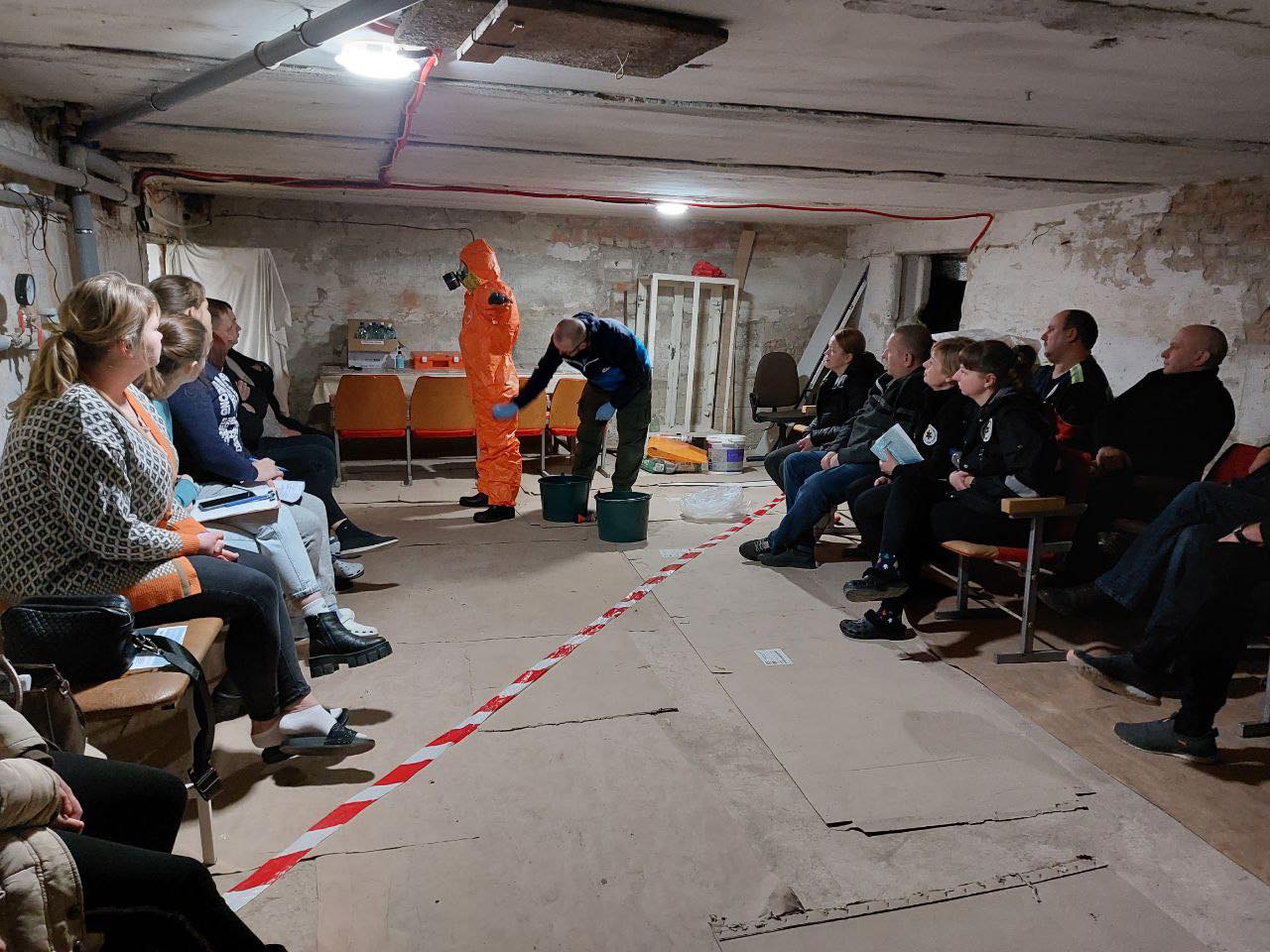
Photo from medical training in Chernihiv
Availability of antidotes and PPE
"Antidotes have been invented for some chemical substances; for some, they do not exist by definition; they cannot exist purely theoretically. There is a conditional situation of suffocating action — symptomatic treatment is used to eliminate the acute spasm. Perhaps we are not equipped with ultra-modern antidotes — combined ones. But, first of all, there are not enough of them in the world to be enough for a country like Ukraine. Secondly, there are ordinary antidotes that make it possible to save lives, the same atropine; we have enough of it," the expert explains.
Doctors are also equipped with personal protective equipment. Recently, hospitals received modern systems from the Ukrainian IREX Rapid Response Fund.
"We received very cool costumes, some of which were distributed to regions. These are modern PPE, not Soviet-style, ready to save lives."
In addition to suits, the Ukrainian IREX Emergency Response Fund handed over 176 modern gas masks, 42 sets of personal protection for work in front-line locations (body armor and helmets), 260 first-aid kits, and 40 medical backpacks to medics.
Training of doctors
11 lectures were held for doctors on the organization of hospital work during a potential chemical attack and methods of treating the consequences of poisoning by combat toxic substances.
Doctors were also trained to respond to chemical threats even before the war because emergencies are always possible in industrial enterprises.
"It is necessary to know the characteristics of poisonous substances that can be used as chemical weapons. We take into account modern realities. We receive modern protection systems; training is carried out according to special programs.
During the coronavirus pandemic, most medical infections were because they did not know how to put on and take off masks and suits. We conducted training among employees, and now everyone knows how to use personal protective equipment. All our teams are equipped with the necessary PPE. The more we prepare for this, the less likely it will happen," says Vitaly Kryliuk.
Medical teams in recently de-occupied territories also received PPE.
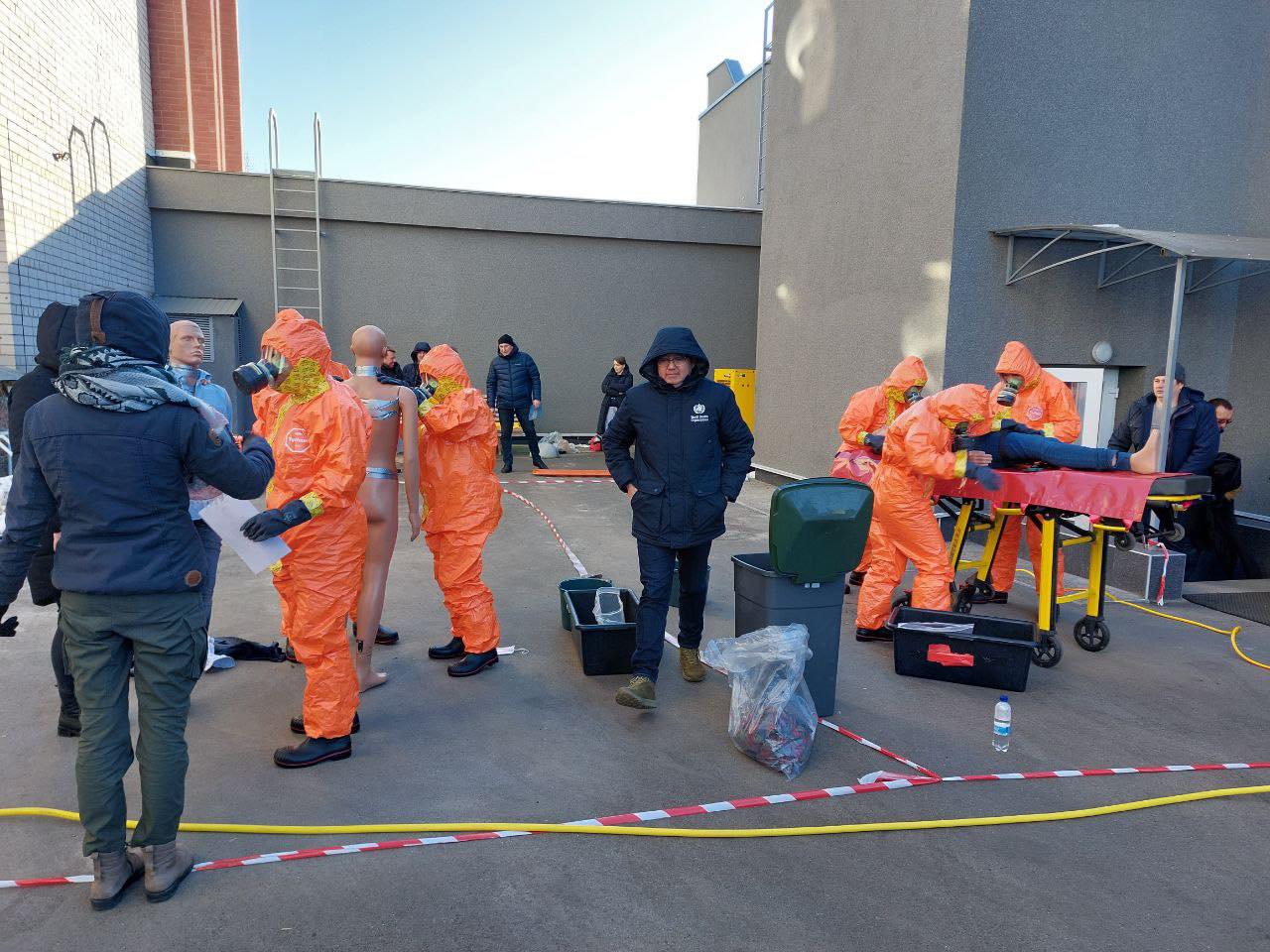
Photo from medical training in Chernihiv
Even more useful solutions!
How to prepare as a civilian?
The expert says that the Internet is full of information on what to do in the event of the use of chemical weapons or an accident at a chemical plant. But the doctor wants to reassure Ukrainians: there is no need to choose expensive respirators and buy something extra. Because you still need to know how to use them in the event of a threat. There is no urgent need for such means of protection at home.
The most dangerous place will be the epicenter of an emergency. Most substances can poison water, air, and food.
- What to do if a chemical attack caught you on the street? You should walk in the opposite direction from the wind. Already at home, remove your clothes as quickly as possible, and wash your skin — this is already a significant cleansing.
- What to do if you were at home and received news of a chemical leak? Isolate the house, use only those products that were at home, and orient yourself on the information of the State Emergency Service about the elimination of the threat.
"I don't quite agree with the fact that you should go down to the basement or go upstairs, depending on the substance. There are more volatile compounds and less. How will you understand which one is threatening you right now?" — Vitaly Kryliuk says. The doctor advises to additionally familiarize yourself with the recommendations of the Ministry of Health on what to do if there is a chemical threat.
For the civilian population, with the support of the IREX Ukrainian Rapid Response Fund, a chatbot on chemical safety was created, which will tell about how to act in the event of a chemical attack with various toxic combat substances. More than 45,000 people have already used it.
You can also learn about the signs of poisoning and the algorithm of actions from the leaflets:
This material was created by the online media outlet Rubryka within the framework of the "Ukrainian Rapid Response Fund" program, implemented by IREX, with the support of the US State Department. The content is the sole responsibility of the Rubryka online media outlet and does not necessarily reflect the views of IREX or the US State Department.


